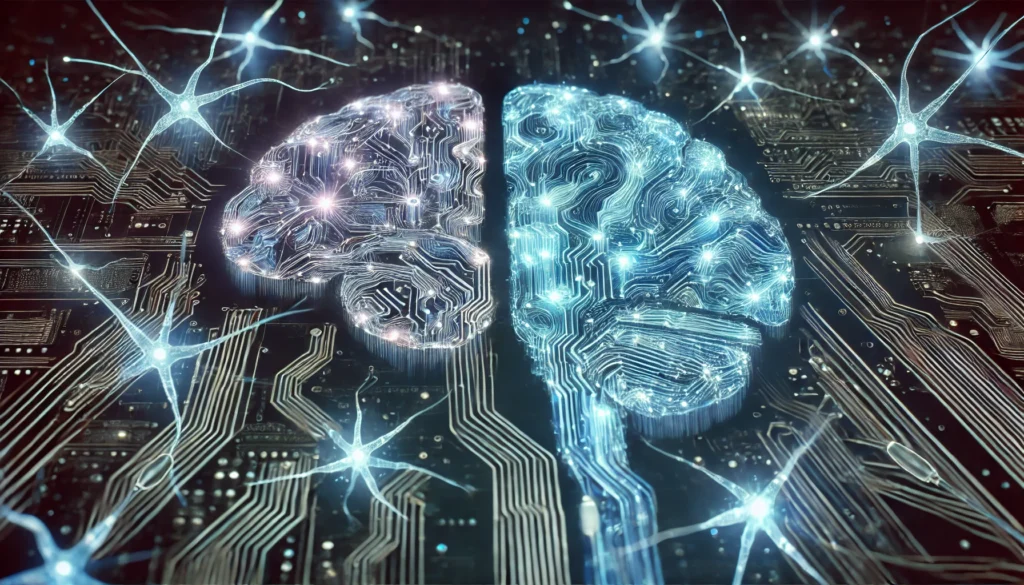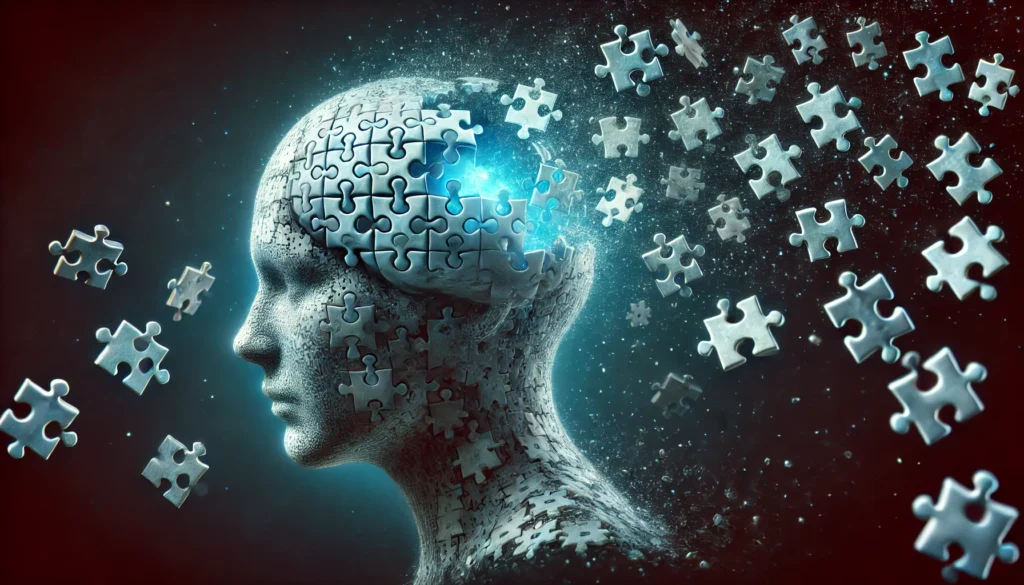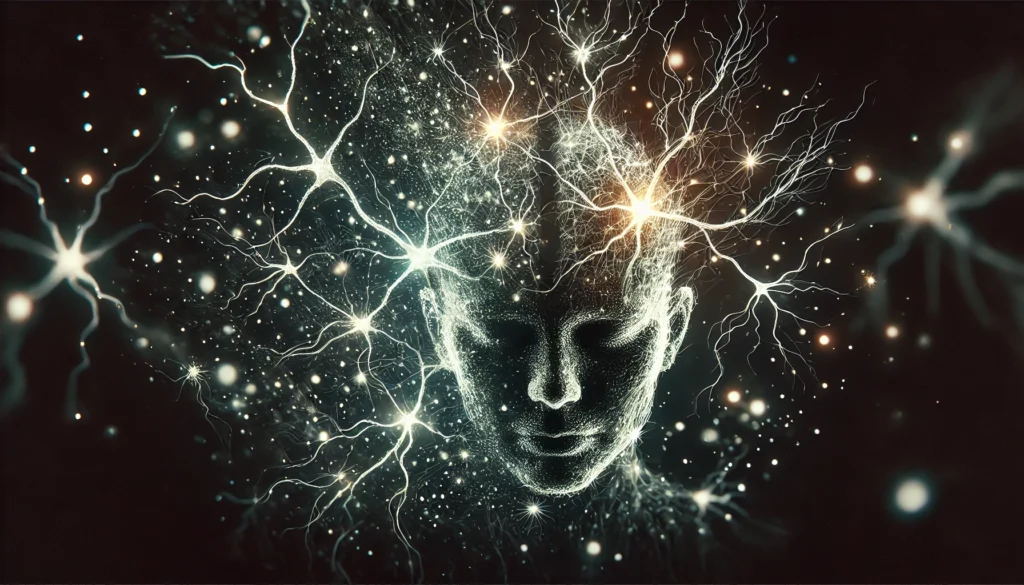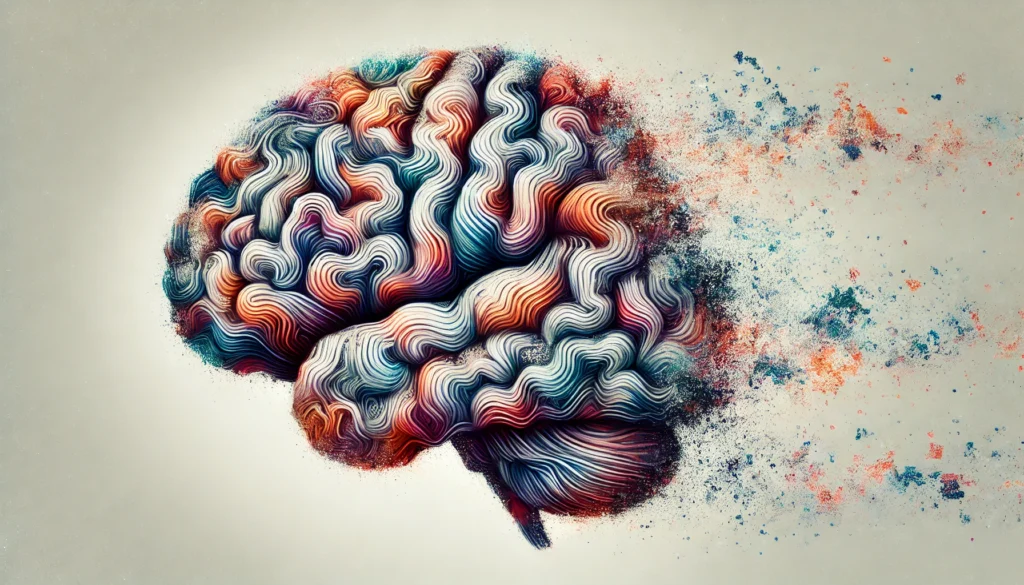Memory loss, or amnesia, is the inability to remember information or experiences. This condition can vary dramatically in severity and manifestation, impacting individuals differently. While “amnesia” is often dramatized in movies as a complete loss of identity, in reality, it can manifest in various forms and degrees. Understanding the types of memory loss is crucial for recognizing symptoms and seeking appropriate care. Memory loss can stem from a variety of causes, including neurological conditions, psychological factors, and traumatic events. Each type requires a nuanced understanding to ensure effective intervention and support.
You may also like: Memory Exercises for Everyday Life
Short-Term Memory vs. Long-Term Memory Loss
Short-term memory refers to the temporary storage of information, like remembering a phone number long enough to dial it. This type of memory is crucial for everyday tasks and learning new information. Long-term memory involves the retention of information over extended periods, such as recalling childhood events or important life milestones. Long-term memories form the essence of our past and influence our future decisions.
Short-term memory loss can be sudden or gradual, and its impact may vary widely. It might result from stress, distraction, or more serious neurological issues. On the other hand, long-term memory loss often indicates more profound neurological issues, such as damage to specific brain regions. While both types can occur independently, they may also coexist, complicating diagnosis and treatment. Understanding the interplay between these memory types is essential for developing comprehensive care plans.
Different Types of Amnesia
Amnesia is not a one-size-fits-all condition. It encompasses various forms, each with distinct characteristics, making diagnosis and treatment complex:
- Anterograde Amnesia: Difficulty forming new memories following the onset of amnesia. This type often results from brain injury or disease affecting the hippocampus, a critical region for memory formation. Individuals with anterograde amnesia may struggle to remember daily activities or new acquaintances, severely impacting their quality of life.
- Retrograde Amnesia: Loss of pre-existing memories, often those closest to the time of onset. This form can result from head trauma, stroke, or degenerative brain diseases. Patients may retain older memories while losing more recent ones, causing confusion and disorientation.
- Transient Global Amnesia: A sudden, temporary episode of memory loss affecting short-term recall. This condition is usually benign and resolves within 24 hours. Though the exact cause is unclear, it is often triggered by stress or physical exertion.
- Infantile Amnesia: The inability to remember events from early childhood. This is a common phenomenon where individuals cannot recall memories from the first few years of life. It is believed to be due to the underdevelopment of memory-forming structures in the infant brain.
Memory loss, whether due to amnesia or other cognitive disorders, is closely linked to the brain’s natural forgetting processes. Exploring how the brain selectively retains and discards information sheds light on memory formation and potential treatment strategies.

Causes of Memory Loss
Memory loss can arise from numerous factors, ranging from medical conditions to lifestyle choices. Identifying the cause is pivotal for effective management and treatment. Understanding these causes can also help in developing preventative strategies and educational initiatives to reduce the prevalence of memory-related issues.
Diseases That Cause Amnesia
Several medical conditions are known to impair memory, each presenting unique challenges:
- Alzheimer’s Disease: A progressive neurodegenerative disorder causing severe short-term memory loss. It is characterized by the buildup of amyloid plaques and tau tangles in the brain, leading to cognitive decline.
- Dementia: A group of symptoms affecting memory, thinking, and social abilities. Dementia can arise from various diseases, including Alzheimer’s, and significantly impacts daily functioning and independence.
- Parkinson’s Disease: While primarily affecting movement, it can also impact cognitive functions, including memory. Cognitive decline in Parkinson’s is often linked to changes in brain chemistry and structure.
- Stroke: Disruption of blood flow to the brain can lead to memory impairment. Depending on the stroke’s location and severity, individuals may experience different levels of memory loss and cognitive dysfunction.
Lifestyle and Environmental Factors
Certain lifestyle choices and environmental factors can also contribute to memory issues, highlighting the importance of healthy living:
- Stress and Anxiety: Chronic stress can impair memory by affecting the brain’s structure and function. Stress hormones, like cortisol, can interfere with memory processing and retrieval.
- Lack of Sleep: Quality sleep is essential for memory consolidation. Sleep deprivation can lead to reduced memory capabilities and cognitive performance.
- Substance Abuse: Excessive alcohol or drug use can damage brain cells and impair memory. Substances like alcohol can have neurotoxic effects, impacting memory and cognitive health over time.
Alcohol consumption, particularly in excessive amounts, has been linked to structural changes in the brain that accelerate cognitive decline. Research suggests that chronic alcohol use can contribute to conditions such as Wernicke-Korsakoff syndrome, a severe form of memory impairment.

Medically Induced Amnesia
Sometimes, amnesia is induced intentionally, such as during medical procedures requiring anesthesia or sedation. This type of amnesia is typically temporary and resolves once the medication wears off. It is a controlled and expected side effect designed to ensure patient comfort and safety during surgeries or diagnostic procedures.
However, chronic sleep deprivation can also lead to memory disruptions similar to those seen in medically induced amnesia. Studies suggest that inadequate sleep impairs the brain’s ability to consolidate and retrieve information effectively.
Symptoms of Amnesia
Recognizing the symptoms of amnesia can aid in early diagnosis and intervention. These symptoms can vary depending on the type and severity of memory loss, but common symptoms include:
- Difficulty recalling recent events or new information: This is often the first noticeable sign of memory issues, affecting daily activities and interactions.
- Forgetting significant personal history or familiar faces: This symptom can be distressing for both the individual and their loved ones, leading to social withdrawal.
- Confusion or disorientation regarding time and place: This can lead to safety concerns, as individuals may become lost or unable to navigate familiar environments.
- Repeatedly asking the same questions: This behavior indicates a failure to retain new information, often frustrating for caregivers and family members.
Some individuals may struggle with memory processing disorders, which affect the brain’s ability to store and retrieve information efficiently. Understanding these conditions can provide insight into why certain people experience persistent memory recall issues despite an absence of neurodegenerative diseases.
Treatment and Management of Memory Loss
Approaches to managing memory loss vary based on the underlying cause and type. While some memory loss may be irreversible, certain strategies can help mitigate its effects and improve quality of life. Early intervention and comprehensive care plans are crucial for optimizing outcomes.

Medical Interventions
Medical treatment often involves addressing the root cause of memory loss. This may include medications for managing symptoms of Alzheimer’s or other neurodegenerative diseases. Pharmacological approaches aim to slow disease progression and improve cognitive function, although they cannot cure the underlying conditions.
In some cases, underlying medical conditions such as thyroid imbalances can contribute to memory difficulties. Managing thyroid health effectively may help improve cognitive function and reduce memory-related issues.
Cognitive and Behavioral Strategies
Cognitive therapies and memory training exercises can enhance memory function. Techniques such as mnemonic devices, association, and repetition can aid memory retention. These strategies are often tailored to individual needs and can be particularly effective when combined with other therapeutic approaches.
Lifestyle Modifications
Incorporating healthy lifestyle habits can significantly impact memory health. Regular physical exercise promotes blood flow to the brain, enhancing cognitive function. A balanced diet rich in omega-3 fatty acids supports brain health, while adequate sleep is crucial for memory consolidation and overall cognitive performance.
Sleep quality plays a fundamental role in memory retention, with studies highlighting its importance in cognitive function and brain plasticity. Adopting sleep-improving strategies can significantly enhance memory recall and overall brain health.

Future Implications and Research
The field of memory research is rapidly evolving, with promising advancements on the horizon. Scientists are exploring innovative therapies, such as brain stimulation and neuroplasticity-enhancing techniques, to combat memory loss.
Emerging research suggests that targeted interventions may even reverse brain shrinkage, a key factor in age-related memory decline. Understanding how neuroplasticity can counteract cognitive deterioration offers hope for future treatments.
Moreover, understanding the genetic and molecular mechanisms behind memory formation and degradation may lead to breakthroughs in preventing or reversing memory impairments. Research into the brain’s plasticity offers hope for developing therapies that can restore lost memories or enhance cognitive capabilities.

Conclusion
Memory is a vital aspect of our existence, and understanding the science behind lost memory is crucial for addressing the challenges it presents. By recognizing the types, causes, and symptoms of memory loss, individuals can seek timely interventions and adopt strategies to support cognitive health. Proactive measures, such as a brain-healthy diet, regular cognitive training, and stress management, can significantly reduce the risk of memory loss. Exploring proven prevention strategies can help safeguard cognitive abilities as we age.
As research continues to unveil the complexities of the human brain, there is hope for more effective treatments and a deeper understanding of how to preserve and enhance memory throughout our lives. The future of memory research holds promise for improving the quality of life for those affected by memory loss and for advancing our knowledge of the human brain.
Further Reading:
Memory loss: When to seek help
Can we restore memories we’ve lost?
Important Note: The information contained in this article is for general informational purposes only, and should not be construed as health or medical advice, nor is it intended to diagnose, prevent, treat, or cure any disease or health condition. Before embarking on any diet, fitness regimen, or program of nutritional supplementation, it is advisable to consult your healthcare professional in order to determine its safety and probable efficacy in terms of your individual state of health.
Regarding Nutritional Supplements Or Other Non-Prescription Health Products: If any nutritional supplements or other non-prescription health products are mentioned in the foregoing article, any claims or statements made about them have not been evaluated by the U.S. Food and Drug Administration, and such nutritional supplements or other health products are not intended to diagnose, treat, cure, or prevent any disease.


